President discussed the victory plan with representatives of Ukraine’s civil society
President of Ukraine Volodymyr Zelenskyy met with representatives of Ukraine’s civil society, discussed the Victory Plan with them, and called for cooperation in implementing its points.
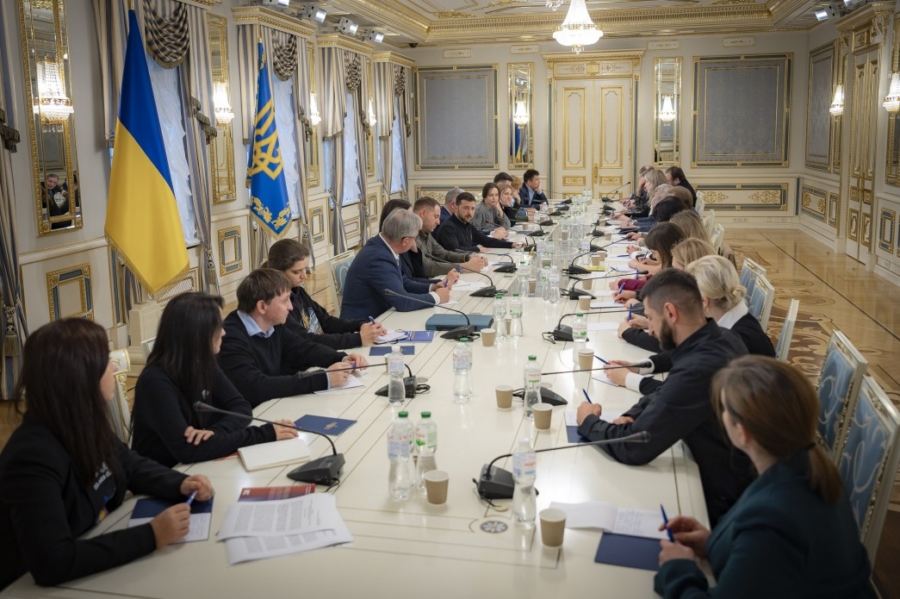
According to the Head of State, civil society can help in uniting Ukrainians and the international community in support of Ukraine. Our victory requires exactly the kind of unity we had in the early days of the full-scale Russian invasion.
“Today we are talking about the first step – the ability to defend Ukraine. To win. To prevail. Therefore, if we are talking about reality and results, I would like our meeting to mark the beginning of our united movement from perception to actual results,” the President said.
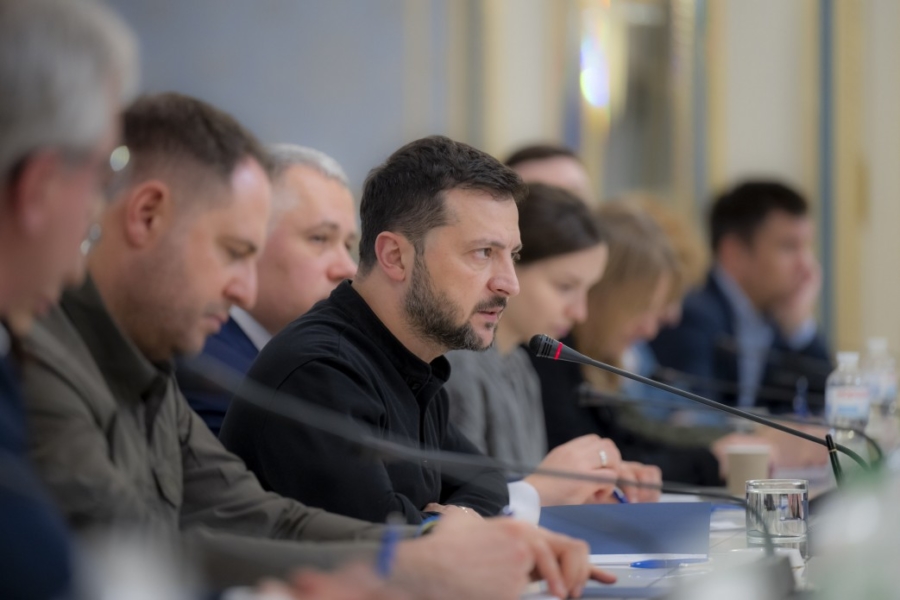
On behalf of civil society, the meeting was moderated by the Executive Director of the International Renaissance Foundation, Oleksandr Sushko.
Maksym Butkevych, co-founder of the ZMINA Human Rights Center and a serviceman of the AFU, who was recently released from Russian captivity, thanked all those who helped him return home. He noted that his story is proof that the exchanges work, and this is very important for all Ukrainians illegally detained by Russia.
Maksym Butkevych also emphasized that Ukraine’s partners must understand that prisoners of war, especially those convicted in fabricated cases, are hostages used by the aggressor state.
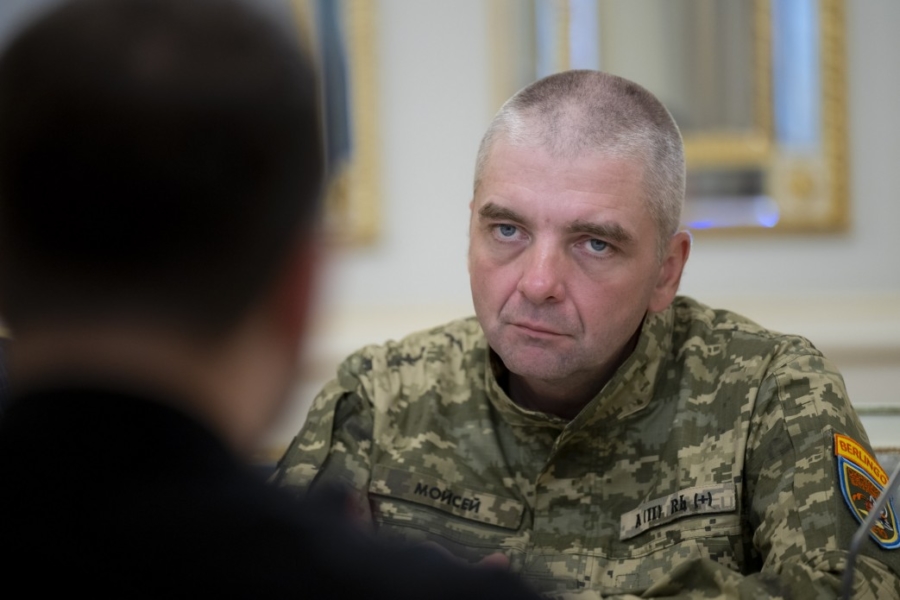
“I really hope that the exchanges will continue and one day be on a large scale. This also poses a challenge, because we need to build rehabilitation and support systems for those who return,” he said.
Maksym Butkevych praised the work of the rehabilitation center where he is currently staying, the extremely responsive attitude of its staff and the reintegration team of the Armed Forces of Ukraine.
The conversation mainly focused on the contribution of Ukraine’s civil society to Ukraine’s victory and its potential for promoting the Victory Plan.
Alyona Getmanchuk, Director of the New Europe Center, shared information on how her organization is advocating for Ukraine’s accession to the EU and NATO.
The Center’s representatives are constantly looking for opportunities to convince partners in the United States and the European Union. They emphasize the importance of the invitation to join the Alliance, the development of accession algorithms, and security guarantees until NATO membership is granted.
“Europe needs to assume more leadership, and we are trying to convey this now in order to protect even our accession to the EU. Because NATO is also about protecting our accession to the EU for those countries that are ready to see us in the EU, but not ready to see us in NATO,” she said.
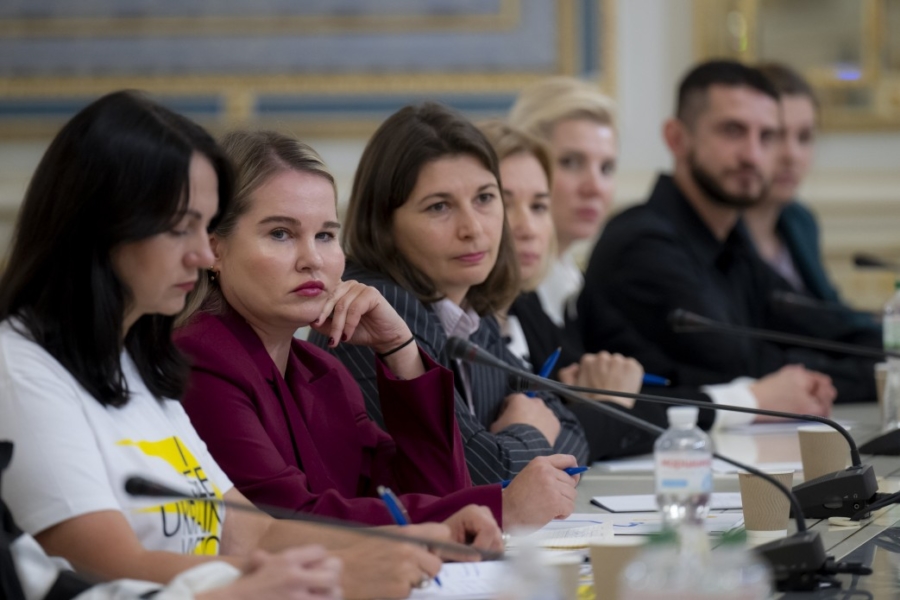
Daria Kaleniuk, Executive Director of the Anti-Corruption Action Center, stressed that partners should not use the corruption issue as a convenient excuse not to invite Ukraine to NATO.
“Say directly that you are afraid of Russia. We have corruption problems, but we have a lot of achievements. We go to the West and tell them: ‘Look at the reforms we have made. The law on customs and the Financial Investigations Service was adopted. Anti-corruption institutions are functioning. E-declarations, do you have those? Everything is perceived quite differently. Of course, there is still work to be done, institutions to be built,” she said.
Maria Berlinska, Head of the Victory Drones project, presented the findings of a study on the effectiveness of weapon use. She is convinced that it will be useful not only for determining the priorities of the national defense and industrial complex, but also for more effective negotiations with partners on military assistance.
“I completely agree that we need to move the war to Russia’s territory, and we need to destroy the enemy’s resources as much as possible where this war machine is being revived. Not when it is already flying over our people’s heads, but when it is still a resource, not a capability,” added Maria Berlinska.
She suggested considering the possibility of establishing a Technology Staff, as warfare is becoming increasingly technological.
Andrii Klymenko, Head of the Monitoring Group of the Black Sea Institute for Strategic Studies, spoke about the already developed draft law on Ukraine’s territorial waters in the Sea of Azov, the Kerch Strait, and the northeast of the Black Sea aimed at establishing Ukraine’s maritime borders. According to him, the document is an example of effective cooperation between civil society, the Office of the President and the National Security and Defense Council.
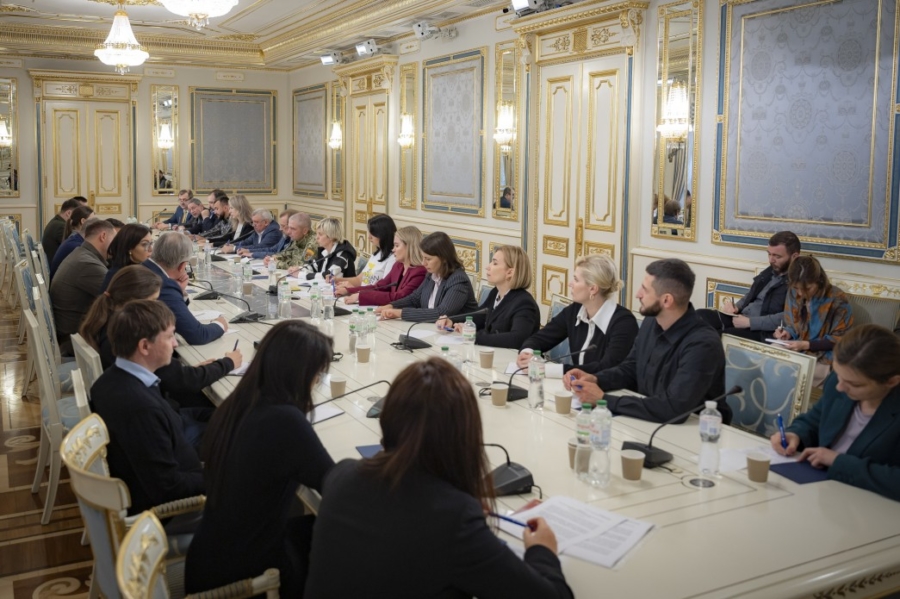
“We suggest that the President of Ukraine submit it as urgent in his name. Moscow will get hysterical, and we will continue our style of naval attacks and have an even stronger legal basis for the de-occupation of Crimea and Mariupol,” he said.
Hanna Hopko, Chairwoman of the Board of the National Interests Advocacy Network ANTS noted the importance of discussing the Victory Plan within the country.
“We have always advocated the formation of a ‘National Team of Ukraine’. This will be a powerful dialog based on trust. The more dialogue we have within the country, the more united we will be and the more successful we will be in achieving the results that will lead to victory,” emphasized Hanna Hopko.
The President said that, together with his team, he will consider all the proposals made by the meeting participants in various areas; he invited civil society to join the development of the internal Plan and thanked them for their willingness to cooperate. Additionally, he acknowledged assistance in developing the Maritime Strategy and informed that he will give instructions for the elaboration of the Technology Staff format.
The meeting was attended by: leaders of the International Renaissance Foundation Oleksandr Sushko, Inna Pidluska and Liubov Tsybulska, Chairwoman of the Board of the National Interests Advocacy Network ANTS Hanna Hopko, Director of the New Europe Center Alyona Getmanchuk, Head of the Monitoring Group of the Black Sea Institute for Strategic Studies Andrii Klymenko Deputy Director of the Come Back Alive Foundation Oleh Karpenko and member of the Supervisory Board Pavlo Klimkin, Director of the Dignitas Fund Lyuba Shipovich, Head of the Victory Drones project of the Dignitas Fund Maria Berlinska, Head of the NGO “Pryncyp” Liubov Hala, Head of the Ukrainian Volunteer Service Anna Bondarenko, Executive Director of the Anti-Corruption Action Center Daria Kaleniuk, Co-Founder of the International Center for Ukrainian Victory Olena Halushka, Executive Director of the Independent Anti-Corruption Commission Olena Tregub, Executive Director of the Association “Energy Efficient Cities of Ukraine” Svyatoslav Pavlyuk, Head of the Board of the Human Rights Centre ZMINA Tetiana Pechonchyk and its co-founder Maksym Butkevych, Chair of the Board at Civil Network OPORА Olha Aivazovska, Head of the Media Initiative for Human Rights Olha Reshetylova, Program Director of the NGO “Detector Media” Vadym Miskyi, Director at Frontier Institute Yevhen Hlibovytsky, co-founder of “The New Country” Civic Platform Valerii Pekar, Deputy Director of the Ukrainian Institute Alim Aliev, President of the Centre for Global Studies “Strategy XXI” Mykhailo Gonchar, Program Director of the Center for Civil Liberties Volodymyr Yavorskyy.
Source: Official website of the President of Ukraine
If you have found a spelling error, please, notify us by selecting that text and pressing Ctrl+Enter.















